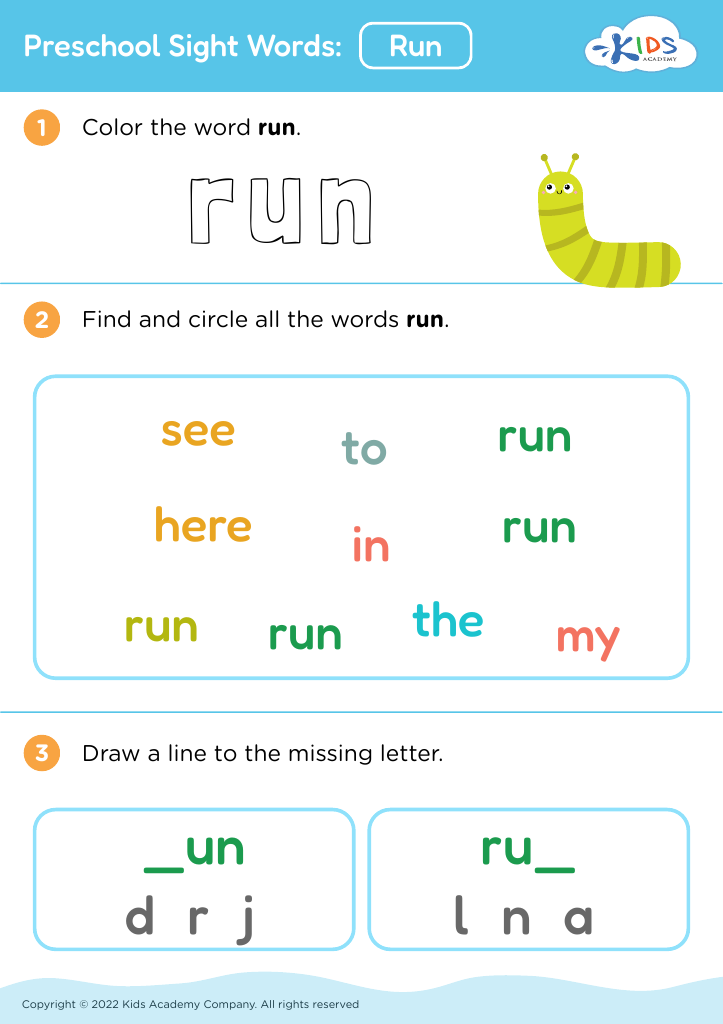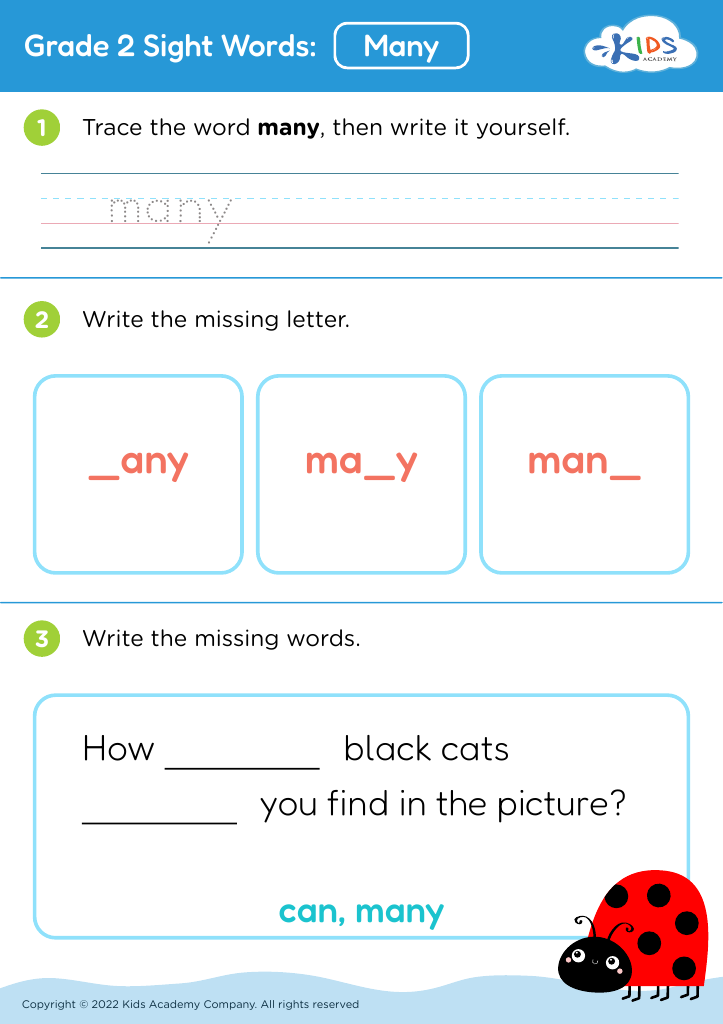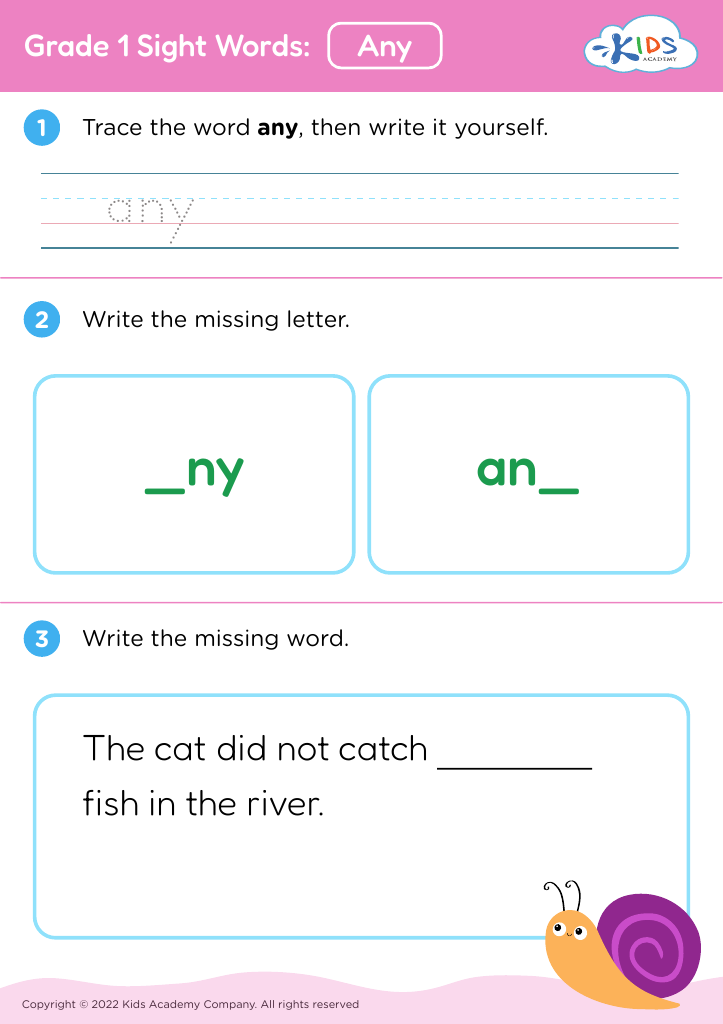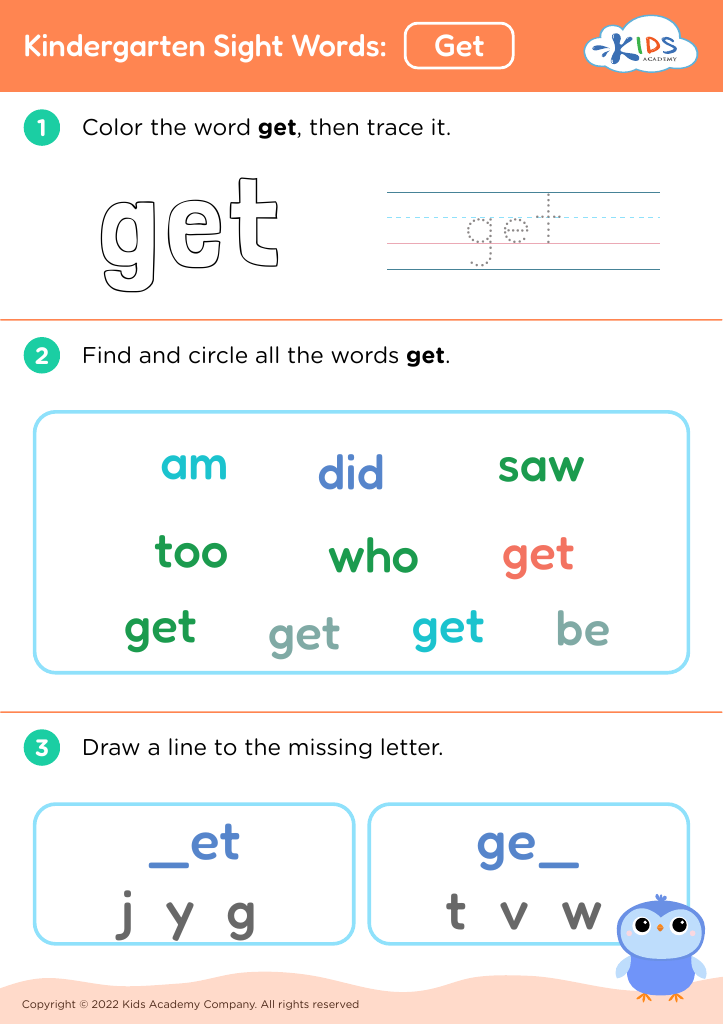Fraction simplification Reading Worksheets for Ages 3-9
16 filtered results
-
From - To
Discover engaging Fraction Simplification Reading Worksheets designed specifically for children ages 3-9! These worksheets seamlessly blend reading and math skills, making learning fractions fun and accessible. With colorful illustrations and age-appropriate language, young learners will develop their understanding of fraction concepts while enhancing their reading abilities. Each worksheet provides a variety of exercises that promote critical thinking and problem-solving, ideal for early grade teachers and parents alike. Foster a love of learning as your child simplifies fractions through interactive and enjoyable activities. Download these comprehensive worksheets today and watch your child's confidence grow in both reading and mathematics!
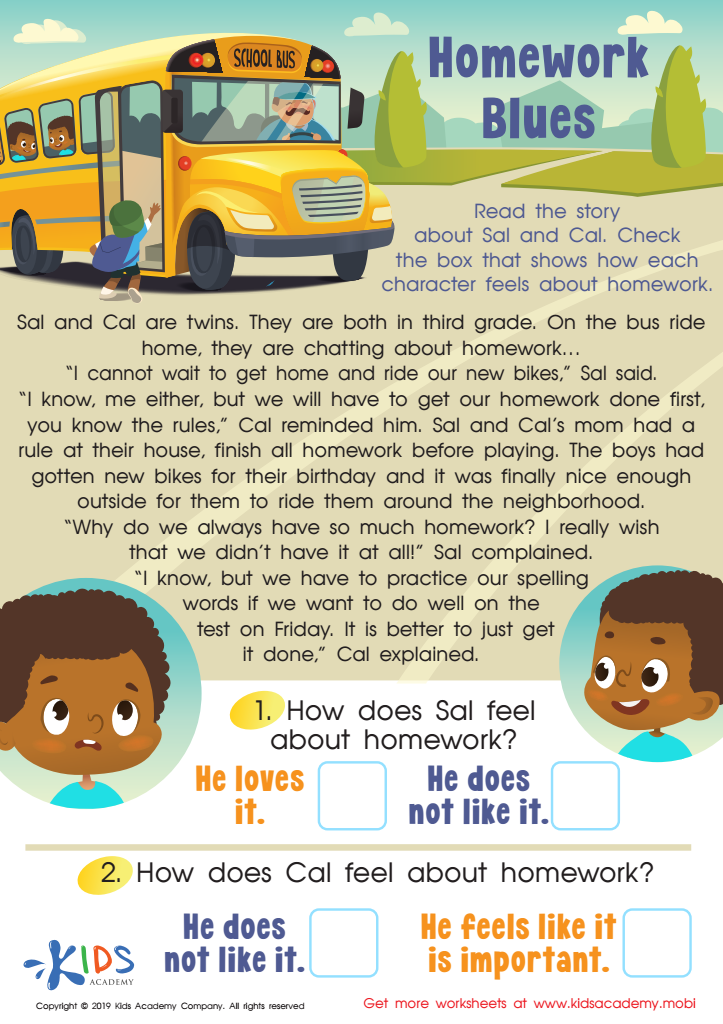

Homework Blues Worksheet
Understanding fraction simplification is essential for young learners, as it lays the foundation for more complex mathematical concepts. For ages 3-9, developing a solid grasp of fractions enhances critical thinking and problem-solving skills. Simplifying fractions helps children learn to recognize patterns and relationships between numbers, fostering a deeper comprehension of mathematics.
Parents and teachers play a crucial role in guiding this learning process. By introducing fractions in a relatable and engaging manner—through everyday scenarios like sharing snacks or dividing toys—they create a context that resonates with young minds. This hands-on approach not only makes fractions approachable but also builds confidence in tackling mathematical problems.
Additionally, mastering fraction simplification can lead to improved performance in future math challenges. It encourages a positive attitude towards the subject, making students more likely to pursue advanced topics. Understanding fractions is also pivotal in real-life situations, such as measuring ingredients in cooking or understanding concepts related to time, money, and data.
By focusing on this early stage of mathematical development, parents and teachers can ensure a smoother educational journey for children, fostering lifelong skills that extend beyond academics to everyday life. Investing time in teaching fraction simplification is essential for a well-rounded education.
 Assign to My Students
Assign to My Students




